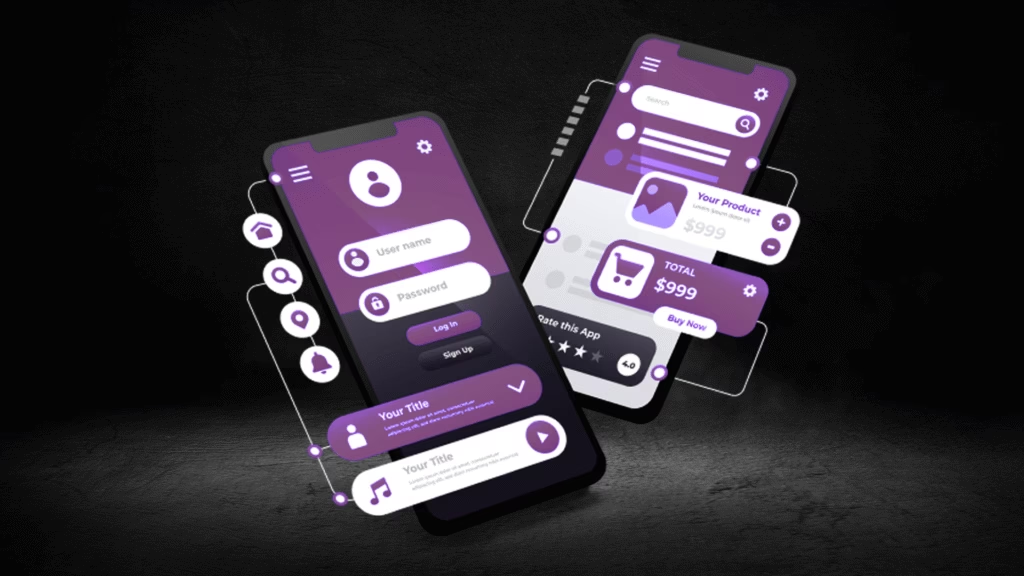Understanding the Landscape of Mobile Application Development in 2025
The mobile application development industry is rapidly evolving, with 2025 set to witness significant advancements and shifts in technology. One of the most pronounced trends is the integration of Artificial Intelligence (AI) into mobile applications. AI enables developers to create smarter, more responsive applications that learn from user interactions, leading to enhanced personalization and overall user satisfaction. Businesses will increasingly seek to hire mobile application developers who possess expertise in incorporating AI functionalities, ensuring that their applications can adapt to changing user needs.
In addition to AI, the rise of cross-platform development frameworks has transformed how apps are created. Developers are now able to write a single codebase that runs seamlessly across multiple platforms, such as iOS and Android. This approach not only reduces development time and costs but also broadens the potential market reach for businesses. Companies looking to stay competitive will need to hire top-rated mobile application developers skilled in popular cross-platform tools like React Native and Flutter, effectively streamlining the development process in 2025.
User experience (UX) remains at the forefront of mobile application development. As users become more discerning and demand intuitive interfaces, developers must be adept at creating engaging and seamless navigation experiences. The importance of UX design is further underscored by the increasing utilization of augmented reality (AR) and virtual reality (VR) features in mobile applications. Businesses that prioritize these aspects will not only retain users but also attract new ones, emphasizing the need for developers to embrace modern UX trends.
Overall, the landscape of mobile application development in 2025 will require firms to adapt to emerging technologies and shifting consumer expectations. Those who hire adept mobile application developers will gain a competitive edge, positioning themselves for success in a vibrant market characterized by rapid technological advancements.
Essential Qualities to Look for in Top-Rated Mobile Developers
When considering how to hire mobile application developers in 2025, it is imperative to recognize the essential qualities that define top-rated professionals in the field. First and foremost, technical expertise stands as a pillar of competency. A proficient mobile application developer should possess a strong command over various programming languages, including Swift, Java, and Kotlin. Familiarity with development tools such as Xcode and Android Studio is equally significant. Understanding the application of frameworks such as React Native or Flutter can also enhance a developer’s versatility and ability to create efficient cross-platform applications.
Beyond technical skills, problem-solving abilities are critical. Top-rated mobile developers must demonstrate a capacity to navigate complex challenges and generate innovative solutions. This involves not only identifying problems but also implementing effective strategies for overcoming them. Their aptitude for analytical thinking will contribute significantly to the quality of the final product.
Effective communication skills should not be overlooked either. Developing a mobile application often requires collaboration with diverse teams, including designers, project managers, and stakeholders. Therefore, the ability to articulate ideas clearly and actively listen is paramount. Coupled with strong communication skills, cultural fit within a team cannot be underestimated, contributing to a harmonious work environment where ideas can flourish.
A soft skills component, including adaptability and emotional intelligence, becomes increasingly relevant in the developer landscape of 2025. As technology continues to evolve, a top-rated mobile application developer should demonstrate a willingness to learn new skills and tools as industry requirements change. Hiring professionals with these essential qualities will not only enhance the efficiency of the development process but will also significantly raise the quality of the applications being produced.
Where to Find and Evaluate Potential Candidates
In the ever-evolving landscape of mobile application development, finding and evaluating top-rated mobile application developers is crucial for success in 2025. Various platforms and strategies can help businesses identify qualified candidates who possess the right skills and expertise.
One effective avenue is online job boards, which cater specifically to technology roles. Websites like LinkedIn, Indeed, and Glassdoor allow organizations to post job openings targeted at mobile application developers. By crafting an appealing job description, employers can attract a diverse pool of candidates. Additionally, utilizing features such as advanced filters helps in pinpointing professionals with relevant experience and qualifications.
Freelance platforms, such as Upwork and Freelancer, provide another valuable resource. These platforms allow businesses to hire mobile application developers on a project basis, enabling flexibility and cost-effectiveness. Reviewing freelancers’ profiles, including ratings and feedback from previous clients, aids in assessing their capabilities and reliability.
Recruitment agencies specializing in technology hiring can also bridge the gap between businesses and potential candidates. These agencies typically have a network of top-rated developers and can streamline the hiring process by pre-screening candidates based on the specific requirements of the job.
Tech meetups and industry conferences present an excellent opportunity to connect with mobile application developers in person. Networking in these environments not only promotes direct engagement but also facilitates stronger relationships and a better understanding of candidates’ interpersonal skills and passion for technology.
Once potential candidates are identified, evaluating their skills is vital. This can be accomplished through an examination of their portfolios, coding tests, and structured interviews. Reviewing past work allows employers to gauge the quality and breadth of a developer’s experience, while coding tests assess technical ability. Structured interviews enable hiring managers to ask pertinent questions related to the role to further evaluate compatibility.
By strategically utilizing these methods, businesses can effectively hire mobile application developers who align with their project needs and company culture.
Best Practices for Hiring and Onboarding Mobile Developers
As businesses increasingly rely on mobile applications to engage their customers, the demand for skilled mobile application developers continues to grow. To hire the top-rated professionals in this competitive landscape, it is essential to adopt a systematic approach to the hiring process. Start by crafting a detailed job description that outlines not only the technical skills required but also the desired soft skills that foster collaboration and innovation. Specific competencies such as proficiency in programming languages, familiarity with frameworks, and experience with UI/UX design should be clearly stated.
During the interview process, prioritize assessing both technical abilities and cultural fit. Consider utilizing coding tests or take-home projects to evaluate the developers’ skills actively. Behavioral interview questions can reveal how candidates handle challenges, work in teams, and respond to feedback. Engaging current team members in the interview process can further ensure that the selected candidate resonates with the company’s values and work culture. Once you decide to hire a candidate, making a competitive offer is crucial, including salary, benefits, and opportunities for professional development.
The onboarding process plays a significant role in ensuring that new hires integrate seamlessly into the team. Start with a comprehensive orientation that introduces them to the company’s culture, mission, and the specific objectives of their role. It is vital to set clear expectations from the outset regarding project timelines, deliverables, and communication practices. Additionally, fostering a collaborative environment contributes to the creativity required in mobile application development. Encourage new hires to share their ideas and establish mentoring relationships with experienced team members, which can facilitate a smoother onboarding experience. Implementing these best practices will position your company advantageously in attracting and retaining top-rated mobile application developers in 2025.









